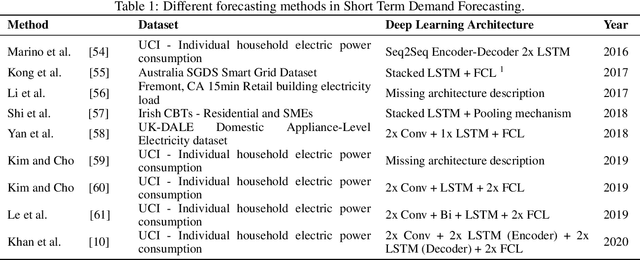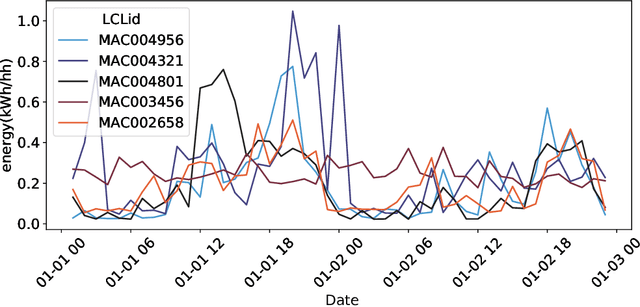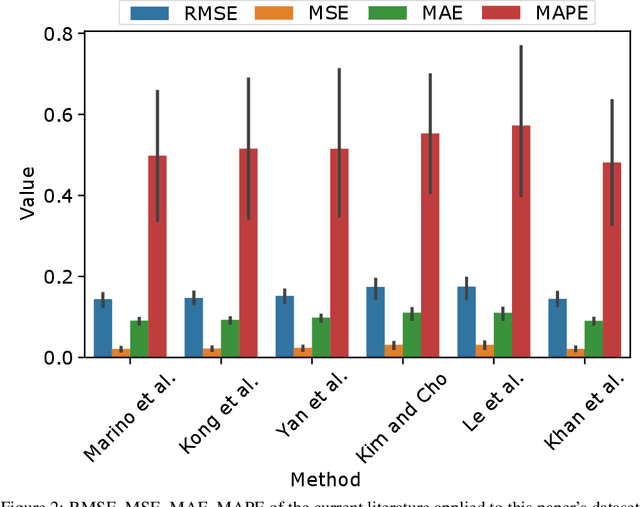Charles Lee
Adapting Task-Oriented Dialogue Models for Email Conversations
Aug 19, 2022



Abstract:Intent detection is a key part of any Natural Language Understanding (NLU) system of a conversational assistant. Detecting the correct intent is essential yet difficult for email conversations where multiple directives and intents are present. In such settings, conversation context can become a key disambiguating factor for detecting the user's request from the assistant. One prominent way of incorporating context is modeling past conversation history like task-oriented dialogue models. However, the nature of email conversations (long form) restricts direct usage of the latest advances in task-oriented dialogue models. So in this paper, we provide an effective transfer learning framework (EMToD) that allows the latest development in dialogue models to be adapted for long-form conversations. We show that the proposed EMToD framework improves intent detection performance over pre-trained language models by 45% and over pre-trained dialogue models by 30% for task-oriented email conversations. Additionally, the modular nature of the proposed framework allows plug-and-play for any future developments in both pre-trained language and task-oriented dialogue models.
Secure Federated Learning for Residential Short Term Load Forecasting
Nov 17, 2021



Abstract:The inclusion of intermittent and renewable energy sources has increased the importance of demand forecasting in power systems. Smart meters can play a critical role in demand forecasting due to the measurement granularity they provide. Consumers' privacy concerns, reluctance of utilities and vendors to share data with competitors or third parties, and regulatory constraints are some constraints smart meter forecasting faces. This paper examines a collaborative machine learning method for short-term demand forecasting using smart meter data as a solution to the previous constraints. Privacy preserving techniques and federated learning enable to ensure consumers' confidentiality concerning both, their data, the models generated using it (Differential Privacy), and the communication mean (Secure Aggregation). The methods evaluated take into account several scenarios that explore how traditional centralized approaches could be projected in the direction of a decentralized, collaborative and private system. The results obtained over the evaluations provided almost perfect privacy budgets (1.39,$10e^{-5}$) and (2.01,$10e^{-5}$) with a negligible performance compromise.
NaRLE: Natural Language Models using Reinforcement Learning with Emotion Feedback
Oct 05, 2021


Abstract:Current research in dialogue systems is focused on conversational assistants working on short conversations in either task-oriented or open domain settings. In this paper, we focus on improving task-based conversational assistants online, primarily those working on document-type conversations (e.g., emails) whose contents may or may not be completely related to the assistant's task. We propose "NARLE" a deep reinforcement learning (RL) framework for improving the natural language understanding (NLU) component of dialogue systems online without the need to collect human labels for customer data. The proposed solution associates user emotion with the assistant's action and uses that to improve NLU models using policy gradients. For two intent classification problems, we empirically show that using reinforcement learning to fine tune the pre-trained supervised learning models improves performance up to 43%. Furthermore, we demonstrate the robustness of the method to partial and noisy implicit feedback.
To Schedule or not to Schedule: Extracting Task Specific Temporal Entities and Associated Negation Constraints
Nov 15, 2020



Abstract:State of the art research for date-time entity extraction from text is task agnostic. Consequently, while the methods proposed in literature perform well for generic date-time extraction from texts, they don't fare as well on task specific date-time entity extraction where only a subset of the date-time entities present in the text are pertinent to solving the task. Furthermore, some tasks require identifying negation constraints associated with the date-time entities to correctly reason over time. We showcase a novel model for extracting task-specific date-time entities along with their negation constraints. We show the efficacy of our method on the task of date-time understanding in the context of scheduling meetings for an email-based digital AI scheduling assistant. Our method achieves an absolute gain of 19\% f-score points compared to baseline methods in detecting the date-time entities relevant to scheduling meetings and a 4\% improvement over baseline methods for detecting negation constraints over date-time entities.
ScopeIt: Scoping Task Relevant Sentences in Documents
Feb 23, 2020



Abstract:Intelligent assistants like Cortana, Siri, Alexa, and Google Assistant are trained to parse information when the conversation is synchronous and short; however, for email-based conversational agents, the communication is asynchronous, and often contains information irrelevant to the assistant. This makes it harder for the system to accurately detect intents, extract entities relevant to those intents and thereby perform the desired action. We present a neural model for scoping relevant information for the agent from a large query. We show that when used as a preprocessing step, the model improves performance of both intent detection and entity extraction tasks. We demonstrate the model's impact on Scheduler (Cortana is the persona of the agent, while Scheduler is the name of the service. We use them interchangeably in the context of this paper.) - a virtual conversational meeting scheduling assistant that interacts asynchronously with users through email. The model helps the entity extraction and intent detection tasks requisite by Scheduler achieve an average gain of 35% in precision without any drop in recall. Additionally, we demonstrate that the same approach can be used for component level analysis in large documents, such as signature block identification.
 Add to Chrome
Add to Chrome Add to Firefox
Add to Firefox Add to Edge
Add to Edge